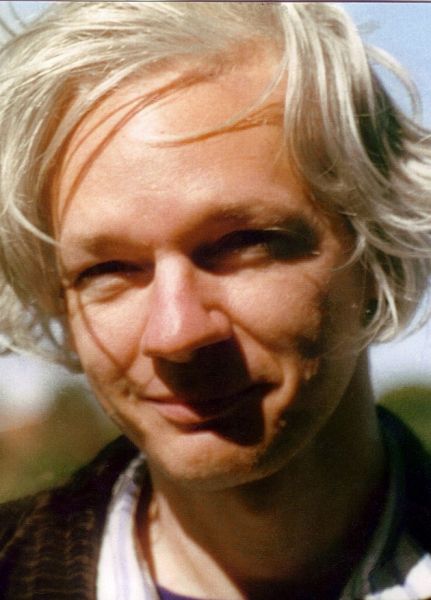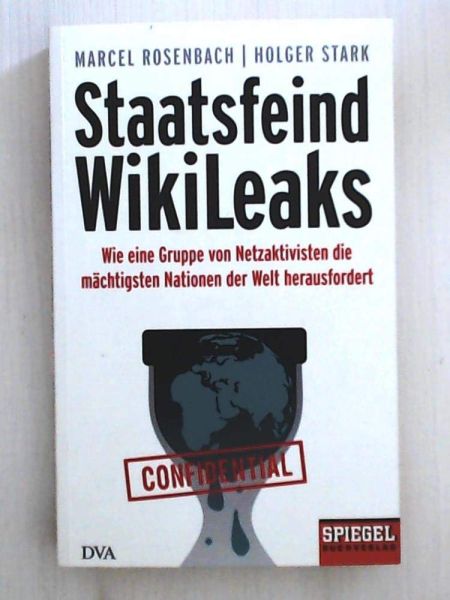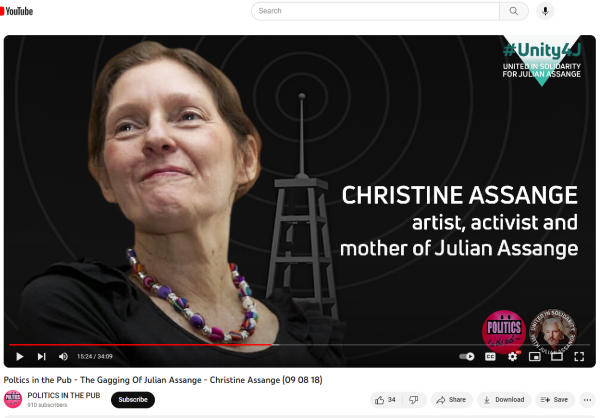Julian Assange: Politics in the Nursery
Julian Assange--Politics in the Nursery
Julian Assange has attracted thousands of disaffected American well-wishers, who see his quest for truth and transparency as the antithesis to overly secretive American leadership. But the criticisms run deeper than simply a need for transparency. The disaffected Americans and Britons despise the everyday intentions and functions of their nations.
Not much anyone can do about that, unless the disaffected can get their brains around the idea of founding a separate country and basing it on a more humanitarian value system. If the disaffected claimed their own country, they could make their own decisions about what to do if someone leaks secrets that belong to them.
Secrets have value like money. You place them in safekeeping. Often, they don't simply belong to a single party. Other nations count on us to keep secrets in a spirit of shared trust. If someone steals them and spreads them around indiscriminately, the secrets lose their value. The nations who held them also lose the trust of other nations.
If disaffected Americans decide to found a more humanitarian nation than this one, they might also change their minds about Assange, since the secrets that he exposes will belong to them and not us. They might also realize that the so-called "community of nations" inter-relates competitively as well as diplomatically, and that each nation continuously evaluates the trustworthiness of other nations. Assange's disregard for a nation's secrets will require that even humanitarian nations re-evaluate the utility of "transparency," if it negatively affects their relations with other nations.
In effect, as a stateless person, Assange has no regard for any of this. In my last post, I mentioned a phrase from Wikipedia's article on Assange. When arrested for hacking into the computer of Nortel, a Canadian telecommunications firm, he faced jail-time. Instead, the Australian court fined him and made him compensate for Nortel's losses. The court decided on leniency after reviewing Assange's "disrupted childhood."
As I said in my last post, I wanted to learn a bit more about Assange's childhood, if it could compel him to turn anti-social. After all, the British writer Cyril Connolly once said, "Politics begins in the nursery." Connolly continued, "It is the child whose craving for love is unsatisfied, whose desire for power is thwarted" who turns into a dictator or a revolutionary.
Curiously, the book Staatsfeind Wikileaks uses similar words to describe Assange's childhood, but in German: a "unstetes Leben". The book goes into detail about Assange's early that lead me to say that Assange's actions grow out of his feeling of hurt, and a desire for revenge against the basically faceless, uncaring society. This attitude grows out of his relationship with his mother, to whom the reader should attribute the term "unstetig," inasmuch as she lived a vagabond life, disregarding any lifelong attachments. She retreated from men who loved her, and into the arms of rebel-without-a-cause types who later threatened her.
Basically, she went on the lam with Assange throughout his youth. They had to assume false identities to avoid the bad guys. This period of his life defines Assange. He runs from enduring relationships, reports the book Staatsfeind Wikileaks, which writes about his "dunkle Momente," dark moments, which gave him "das erlernte Prinzip des Zurücklassens", meaning that he acquired from experience his tendency to retreat from people and things. Assange had learned from childhood to live on the run so successfully, he knew he could do that again after the publication of Wikileaks, and possibly running away comes naturally to him.
Assange presents a problem for contemporary American society, inasmuch as he has no sense of a winning side or a losing side, philosophical orientation, or perception that certain countries present a danger to our country. He does not measure the utility of a society in terms of personal freedoms or opportunities. If anything, a dictatorial society compensates for his past feeling of powerlessness, from his relations with his mother.



